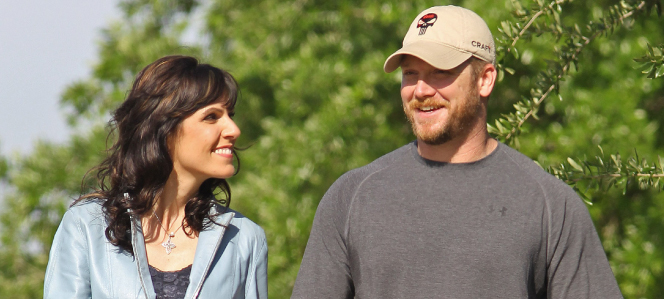Chris Kyle preferred the common good to his own individual good. If you’ve seen American Sniper, you’ll recall that his preference is displayed poignantly in an argument with his wife, Taya, before his fourth tour in Iraq. She asks him why he’s thinking about going back “over there.” She’s raising the kids by herself. She knows these extra tours are not strictly necessary. Other husbands have done fewer, and she demands to know why he wants more. What about her and the kids?
Kyle doesn’t give an eloquent answer in the movie. He mentions duty to country and denies loving war for its own sake. In his autobiography Kyle reveals more, saying that he and his wife are thinking with different sets of priorities: God, family, and country in her case, but God, country, and family in his.
Most of us will never face this kind of existential challenge. There is no longer a draft that demands we separate ourselves from our loved ones and cross the sea to fight a foreign enemy. In Taya’s defense, she seems to speak for most Americans. She misses her husband and knows that he is doing more than the bare minimum. The result: she is suffering more than most military wives (who have more than their fair share of worries).
Although it’s easy to sympathize with Taya, her husband isn’t completely wrong in his stance on the matter. There is a truth stated in The Rule of St. Augustine which says, “You will make progress the more you care for the common good over your own private good.” This will be familiar to Dominican readers, since we abide by the Rule and have read it many times. While Augustine is talking about growth in supernatural virtue, there is some parallel here to natural virtue, such as that lived out by soldiers like Chris Kyle. Defense is a key component of the common good of a nation. Kyle knew that, despite our apparent lack of national cohesion, he guarded that fundamental human flourishing that can only occur in physical security and social peace.
More than his own private concerns, he loved the good of his fellow Americans and the good of his fellow SEALs. It is, of course, a reasonable private goal to be safe from harm. It is also a sensible course of action to do one’s part and leave the rest of the task to the next guy in line. But that is not the mentality in American Sniper, nor should it be the mentality of any Christian pursuit of virtue as well.
Going home right after the job is done might be understandable in some circumstances (or for some soldiers), but it can also foster a contractual mentality. “I do this, you do that. Fairness. Fifty-fifty.” This mentality—and its problems—can be found in many other life situations. Take marriage for example: fifty-fifty doesn’t cut it; both spouses have to give 100% so that their marriage will survive. Neither does fifty-fifty work in military units—no one is going to survive the battle if all the soldiers embrace minimalism.
In his famous social encyclical, Caritas in Veritate, Pope Benedict spoke about a kind of Christian maximalism. Here, Benedict is writing about how to live our natural lives in society through a supernatural mode. He calls for a whole social system based on gratuity and communion. He doesn’t describe this reality legislatively, as if virtue could be coerced out of people, but he exhorts Christians to live at this higher level. The natural virtue of generosity we see in Navy SEALs like Chris Kyle can inspire us to transpose these qualities to our own relationship with God and neighbor. Grace builds on nature, and these natural virtues can be a starting ground for higher supernatural ones.
To be sure, Chris Kyle wasn’t a saint as we would recognize saints: his story has episodes of unchastity and aggression, for instance. But he did have a natural generosity in his decision to go over to Iraq again and to even work with veterans upon his return home, helping them to recover and to heal. While Kyle was working with these PTSD patients, he was killed by a mentally ill gunman. The story of his commitment to our country remains a moving testimony of generosity, which can inspire us to strive for great things in our own life.
This post was written by Br. Edmund McCullough, who entered the Order of Preachers in 2011. He is a graduate of Mount Saint Mary’s University and worked in campus ministry before entering the Order.
